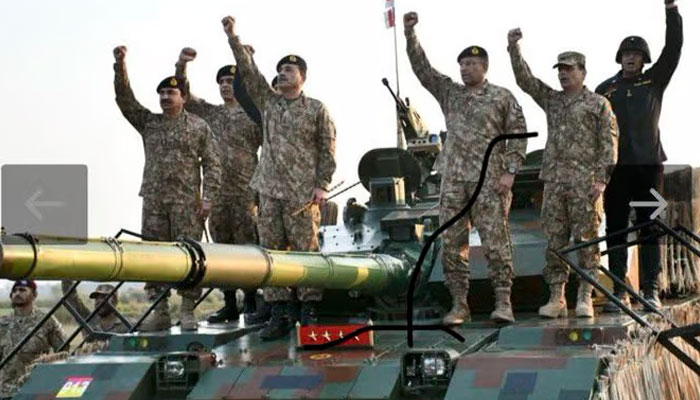A QUEST FOR REGIONAL PEACE AND STABILITY IN SOUTH ASIA: ROLE OF PAKISTAN
By: Zoha Aziz Article Writer and Research Analyst National Defence University
Pakistan has been one of the hardest-hit nations by terrorism, losing thousands of lives while fighting to restore regional stability. In spite the proxies’ war waged by its neighboring states it showed resolve to advocate for dialogue and peaceful coexistence with all its neighbors. Its foreign policy remains anchored in mutual respect, non-interference and the pursuit of lasting regional peace. Through consistent counterterrorism efforts, Pakistan has proven its commitment to defeating terrorism and extremism and promoting stability across South Asia.
Since returning to power in August 2021, time and again Taliban have given assurances to the international community and neighboring states that Afghan’s soil under their rule will no longer serve as a safe haven for transnational terrorist groups. Statements have emphasized non-interference, respect for international borders and counterterrorism cooperation. However, numerous reports, analyses and intelligence assessments suggest a contrasting reality: a policy of tacit and at times active, patronage of certain militant groups, particularly the Tehrik-e-Taliban Pakistan (TTP), Al-Qaida and IS-Khorasan (IS-K). This tension between promise and practice has significant implications for regional security, diplomatic relations and the credibility of Taliban governance. While the Taliban’s statement reflects a desire for legitimacy, the observed behavior tells a more complex story. Several credible sources outline evidence that contradicts the public pledges.
According to UN Security Council monitoring reports, the Taliban regime has allowed safe heavens for operational and logistical spaces to the TTP. New training camps have reportedly been established and expanded in border provinces such Kunar, Nangarhar, Khost and Paktika. UN monitoring reports suggest that Al-Qaida remains active in several Afghan provinces under the Taliban regime. IS-K has continued to conduct attacks inside Afghanistan and there is evidence of overlapping or contested areas of influence between IS-K and the Taliban, particularly in eastern provinces. The United State Institute of Peace has also stated that analysts note ideological proximity, shared networks and historic connections between the Taliban and TTP, which complicate purely coercive containment.
Pakistan has provided evidences to International Community about attacks originating from Afghanistan under the patronage of Taliban. Pakistan has also communicated the same to the Taliban top leadership who gave verbal assurances to Pakistan but failed to implement it on ground. Pakistan has hosted 4.5 million Afghan refugees for more than four decades extending humanitarian support through access to housing, health care, education and livelihood opportunities despite internal challenges. Afghanistan is a landlock country and Pakistan has been facilitating it by providing access to its ports and other trade facilities through its borders on humanitarian grounds despite attacks from its soil.
Through consistent diplomatic channels including China, Russia, Saudia Arabia and Qatar, Pakistan has urged the Taliban top leadership to prevent militant groups, particularly TTP from using Afghan territory for cross border terrorism, stressing that such activities are threat to regional peace and stability. The recent devastating terrorist’s attacks on Pakistan armed forces including attack on DI Khan police training center compelled Pakistan to adopt a clear stance. On 09 Oct 25, Taliban’s foreign minister Amir Khan Muttaqi while his visit to India has publicly denied that the Taliban harbor TTP inside Afghanistan. He asserted that militancy in Pakistan is largely internal issue and criticized Pakistan for attributing all problems to Taliban. In response Pakistan’s FO strongly rejected his remarks, saying Taliban had been repeatedly confronted with evidence of militant groups using Afghan soil to attack Pakistan. Whereas, on 10 Oct 25, Pakistan Army spokesperson person addressing a press conference in Peshawar stated that in last two years 1093 Pakistanis including civilians and armed forces personnels embraced martyred while 1786 terrorists including Afghani were killed wherein more than 30 suicide bombers were also Afghanis. On 11/12-night huge number of terrorists group tried to infiltrate into Pakistan from Afghanistan under the covering fire provided by the Taliban from their check posts. Pakistan armed forces retaliated using small arms, heavy weapons including artillery and drone strike and repulse the terrorist’s infiltration. As a result of this border clash 23 Pakistan army soldiers were martyred while 230 terrorist and Taliban were killed. Pakistan armed forces also claimed of capturing and destroying 21 Taliban check posts who provided covering fire for terrorist infiltration beside destroying terrorist’s hideout and training camps in Afghanistan. Interestingly or coincidently, it all happened once the Taliban foreign minister was on seven days visit to India.
Conclusion: The need for coherence and accountability
If the Taliban can defeat the NATO headed by US in Afghanistan, then why cannot they control non state actors operating from their soil and ensure compliance to the commitment they made it to the world. If Taliban wish to move from rhetoric to credible governance on security, certain steps seem essential. Allow UN or neutral regional monitoring of commitments, for example, with credible mechanisms to verify dismantling of militant safe havens. Adopt and enforce laws or decrees that unambiguously prohibit cross-border plotting, recruitment, financing of foreign proxies; hold accountable local commanders who violate those. Cooperation with neighbors on strict border control, intelligence sharing, joint operations where necessary to prevent militant movements. Systematically shutting down or relocating training camps, cutting logistic and financial flows to groups like TTP or Al-Qaida, even when costly or politically sensitive. Consistent messaging internally and externally that links public commitments with action, so that promises are not sees as propaganda.
The gap between peace promises and terror patronage reflects both the legacy of decades of conflict and the complex challenges of rebuilding a state under constrained conditions. But for lasting peace and regional stability, word must be matched by deeds. The test for the Taliban regime is not what it declares, but how it handles the hard, often unpopular, work of restraining militant networks-including those with ideological or tribal affinity and enforcing the rule of law.




Comments are closed, but trackbacks and pingbacks are open.